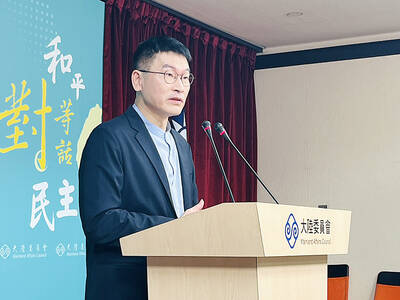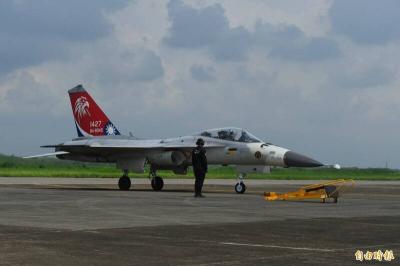Chinese Nationalist Party (KMT) Chairwoman Hung Hsiu-chu (洪秀柱) at an expenditures meeting yesterday said she would sell her home to pay KMT party workers’ salaries.
The Ill-gotten Party Assets Settlement Committee on Friday held its first hearing on the limitations placed on the KMT accessing its funds according to the Act Governing the Handling of Ill-gotten Properties by Political Parties and Their Affiliate Organizations (政黨及其附隨組織不當取得財產處理條例).
The party said it has insufficient funds to pay its entry-level staff’s salaries for last month. The committee reported that Hung indicated she might sell her property to pay the workers’ salaries.
Hung said the committee is acting on first impressions and passes judgement without an investigation, like a court of law.
“I will not hesitate to even sell my house,” Hung said.
“It is my party and I will save it myself,” Hung said, adding that she would find ways to raise funds and might even introduce special party fees.
Hung said that annual party fees are NT$200, which she is hoping to increase to NT$2,000, adding that she would be happy if party members paid more as a donation.
When asked if last month’s and this month’s salaries would be paid without issue, Hung said the party would spare no effort, adding that there is no benefit to being apprehensive right now.
“Solving the plight facing the workers’ livelihoods is of the greatest importance,” Hung said.
Former vice president Wu Den-yih (吳敦義), in response to Hung’s house-selling proposal, said he found the gesture “very moving.”
When asked if he would follow suit, Wu, a potential candidate for next year’s KMT chairperson elections, said: “No. This party needs to operate efficiently. Why should everyone follow suit [and sell their homes]? Do you think that selling a house can save the party?”

LOW RISK: Most nations do not extradite people accused of political crimes, and the UN says extradition can only happen if the act is a crime in both countries, an official said China yesterday issued wanted notices for two Taiwanese influencers, accusing them of committing “separatist acts” by criticizing Beijing, amid broadening concerns over China’s state-directed transnational repression. The Quanzhou Public Security Bureau in a notice posted online said police are offering a reward of up to 25,000 yuan (US$3,523) for information that could contribute to the investigation or apprehension of pro-Taiwanese independence YouTuber Wen Tzu-yu (溫子渝),who is known as Pa Chiung (八炯) online, and rapper Chen Po-yuan (陳柏源). Wen and Chen are suspected of spreading content that supported secession from China, slandered Chinese policies that benefit Taiwanese and discrimination against Chinese spouses of

PROMOTION: Travelers who want a free stopover must book their flights with designated travel agents, such as Lion Travel, Holiday Tours, Cola Tour and Life Tours Air Canada yesterday said it is offering Taiwanese travelers who are headed to North America free stopovers if they transit though airports in Japan and South Korea. The promotion was launched in response to a potential rise in demand for flights to North America in June and July next year, when the US, Canada and Mexico are scheduled to jointly host the FIFA World Cup, Air Canada said. Air Canada offers services to 13 of the 16 host cities of the tournament’s soccer games, including Toronto and Vancouver; Mexico City, Guadalajara and Monterrey in Mexico; Atlanta, Georgia; Boston; Dallas; Houston;

The US approved the possible sale to Taiwan of fighter jet spare and repair parts for US$330 million, the Pentagon said late yesterday, marking the first such potential transaction since US President Donald Trump took office in January. "The proposed sale will improve the recipient's capability to meet current and future threats by maintaining the operational readiness of the recipient's fleet of F-16, C-130," and other aircraft, the Pentagon said in a statement. Trump previously said that Chinese President Xi Jinping (習近平) has told him he would not invade Taiwan while the Republican leader is in office. The announcement of the possible arms

ALIGNED THINKING: Taiwan and Japan have a mutual interest in trade, culture and engineering, and can work together for stability, Cho Jung-tai said Taiwan and Japan are two like-minded countries willing to work together to form a “safety barrier” in the Indo-Pacific region, Premier Cho Jung-tai (卓榮泰) yesterday said at the opening ceremony of the 35th Taiwan-Japan Modern Engineering and Technology Symposium in Taipei. Taiwan and Japan are close geographically and closer emotionally, he added. Citing the overflowing of a barrier lake in the Mataian River (馬太鞍溪) in September, Cho said the submersible water level sensors given by Japan during the disaster helped Taiwan monitor the lake’s water levels more accurately. Japan also provided a lot of vaccines early in the outbreak of the COVID-19 pandemic,